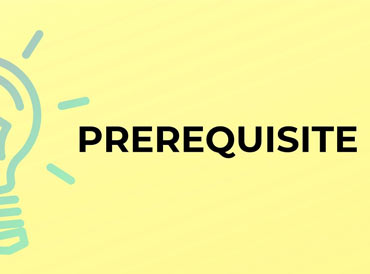Nurses are commonly associated with working in hospitals or in healthcare facilities; however, this is not always the case. Nurses can work in a number of roles in the healthcare industry while still putting their education and abilities to good use. Many nurses are opting for non-traditional occupations, such as nursing writing and research, to share their knowledge and provide insight into the field. Using the nursing writing skills they have, they can help students all across with their nursing assignment projects.
The healthcare industry is ever-expanding, and no matter how much research has indeed been done, cases emerge, and something unexpected occurs, altering the trajectory of medical history. This necessitates the need for professionals to join the writing field and put their experience and work history into words to create a pathway for the generations to come. Nursing writing is one of those fields that are in demand, and students look forward to the writing of a professional medical writer or assistance of a professional nursing assignment writer to get assistance in their nursing writing assignments.
Writing in Nursing

A nurse practitioner is basically a registered nurse with a master’s degree in nursing. They often serve as a patient’s primary care physician, collaborating with a supervising physician and other medical experts to offer complete treatment. Because of the coordinating & collaborative nature of the position of the nurse practitioner, excellent writing and communication skills are essential for ensuring continuity of care and effective information exchange with other health care providers. The aim of nursing writing varies widely, as do the writing genres. Because writing is a key form of communication, it is an important part of nursing. When you write in a clinical record, you’re creating a record of the patient’s health status. It contains information that future healthcare workers can use to deliver high-quality care. Published scholarly writing provides a platform for sharing ideas, facts, information, and experiences with other nurses.
Nurses can serve as a great starting point for other nurses who wish to start a similar profession, a project at their institution, or students who have a nursing assignment to perform by sharing their own experiences, project histories, and expertise with others through nursing writing. By publishing an article on a project, the knowledge is shared with others and can help individuals who are in need. Depending on the medium, medical writing requires specialists to conduct research and write about their results in a way that is understandable to laypeople while also providing useful information to industry professionals. This is a difficult endeavor, but those with a science or medical background are better suited to write for both groups. This is why nurses are better at performing this duty since they have the required skills, knowledge, and hands-on experience.
The Significance of Nursing Writing
Nursing is a career dedicated to providing health care and protection to communities, families, and individuals in order to improve their quality of life and health. Nursing requires a lot of writing. As a trained nurse, you should be able to accurately portray and document what you’ve done for him. You should put your outstanding nursing writing abilities to use during your clinical experience, coursework, or internship as a nursing student. Nursing writing that is done correctly demonstrates a student’s ability to communicate professionally. Nursing writing is widely used in all types of healthcare facilities on a regular basis. Writing is essential in nursing for conveying information and views. The professional nurse should be able to write down their thoughts and observations. Nursing is obligated as a profession to spread information through publishing work in professional journals.

Nurses require writing abilities in addition to generating scholarly material for publication to complete doctoral dissertations and scholarly projects and successfully educate medical students. Furthermore, effective writing skills are critical for the nursing writing profession’s future. Increased emphasis on writing instruction as a priority in today’s nursing graduate school curriculum, greater writing support for nurses writing dissertations and scholarly projects, evaluating writing programs, and monitoring the completion rate of nursing dissertations are all important ways to improve nursing writing skills. Moreover, nursing writing can efficiently deliver health suggestions and information to readers depending on their level of competence. These jobs usually entail not only nursing writing but also editing, copyediting, and proofreading nursing assignment tasks.
Can Nurses Be Medical Writers?
Medical writing is a prestigious field. Medical writers detail, document, and share news and research that improves health outcomes and saves lives every day. Whether they’re producing peer-reviewed articles describing clinical trials, promoting cutting-edge technologies, educating health care professionals and even the general public about novel treatments, or submitting grant proposals to support creative research, their responsibilities and opportunities are always changing. Every day, medical writers document, interpret and disseminate news and research that improves health outcomes and saves lives. Their responsibilities and opportunities are constantly changing, whether they’re writing peer-reviewed articles describing clinical trials, promoting cutting-edge technologies, educating health care professionals and even the general public about novel treatments, or submitting grant proposals to support creative research.
A nurse who works as a medical writer is someone who is passionate about using their personal expertise and experience to educate people about healthcare issues. Writers in various fields of nursing can receive specialized training and skills that can be applied to conveying information, gathering research, and advocating for patients in need. For example, psychiatric nurses can use their mental health knowledge and skills to ensure that written material is informative, meaningful, and helpful. Nursing writing is a valuable skill that can assist readers in obtaining clinical information from a reliable source. Nurses are ideal candidates for medical writing since they are healthcare professionals with relevant education, extensive expertise, and valuable experience in the industry.
Beyond the minimum qualifications for being a professional nurse, professional writing does not necessitate any further certificates or degrees. Some nurse writers may be interested in acquiring a Medical Writer Certified, which is awarded after completing a 125-question multiple-choice test. A bachelor’s or advanced degree in any discipline, as well as at least two years of paid job experience in the medical communication profession, are required for this certification.
Pre-requisites
Before providing advice or personal knowledge in medical writing, nurse writers must have several years of experience as registered nurses. Aside from the degrees needed to become a Registered nurse, a writer does not necessitate any specialized additional courses or study. Furthermore, medical writers should have excellent grammar, spelling, and punctuation. Depending on the sort of company or client, some knowledge of writing styles, such as AP Style, may be required. Nurse writers must also have a strong awareness of who their audience is; for example, if the target audience is fellow nurses, a nurse writer may use more technical vocabulary, or if the piece is for a more general audience, a nurse writer may explain things in layman’s terms.

To become a registered nurse, nurse writers must have an Associate’s Degree in Nursing (ADN) or a Bachelor’s of Science in Nursing (BSN) and pass the NCLEX-RN. Nurses of all grades, including licensed practical/vocational nurses and others, are eligible to write depending on the client and the focus of the writing topics. Most businesses are searching for medical writers with a background in healthcare/nursing, and strong writing skills, so specific educational qualifications are up to them. Writing topics can cover a wide range of topics, including pediatric, psychiatric health, and more. Writers with advanced degrees and levels of expertise are always welcome in the field of medical writing, and they are frequently asked to work on difficult assignments.
Most medical writing jobs require some amount of practical experience as a nurse, particularly in an emergency or mental health setting, though nurses with experience in any field can become medical writers. This knowledge will assist nurse writers in their nursing writing.
Final Thoughts
Nurses engage in a wide range of writing activities. The forms of writing that a nurse does on a regular basis are determined by the nurse’s role and practice location. A hospital nurse, for example, will almost always enter data into an electronic health record. A nurse who works as a medical writer in clinical research, on the other hand, is primarily responsible for writing research proposals, grants, institutional review board applications, and research reports. For this purpose, nurses sometimes acquire certification and useful training in a wide range of nursing writing techniques.
Experienced nurses can find many chances to work as medical writers for health care and nursing publications, groups, and organizations while considering a non-clinical career in the field. These opportunities are not restricted to writing for publications; writing is used in a variety of industries, including business and education. Registered nurses can advance their professional skills and progress into specialized tasks that can be used for non-traditional nursing responsibilities through a variety of organizations. Students who are practically unable to complete their nursing assignment tasks and seek expert assistance can benefit from the effective nursing writing skills of the experts.
